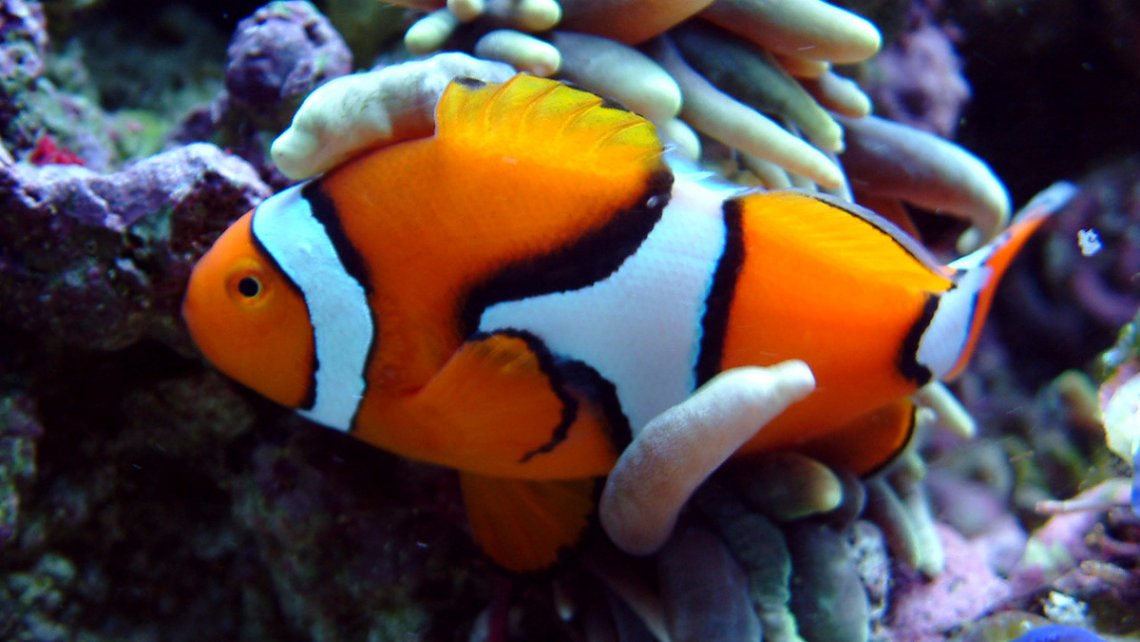Photo-documentary of a Bubble Tip Anemone splitting
When an anemone is about to split, it's usually pretty obvious. It will elongate, stretching across one or more rocks. It will pull both directions, basically ripping itself in half. When a BTA splits, it's even more important to maintain water quality parameters so the halves can heal properly. Anemones will need a few days to heal, sealing themselves and rebuilding the mouth area that is used to swallow food once more.
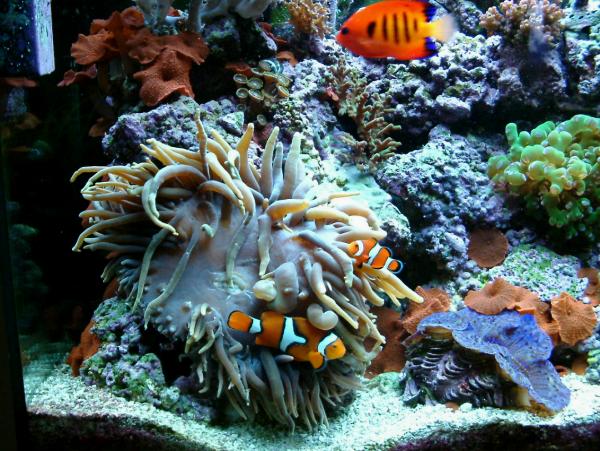
March 7, 2004 - 3:05 p.m. - The BTA looks okay, but not nearly as glorious as in the past. It has been in my 29 gallon reef for 22 months under 165w of PC lighting.
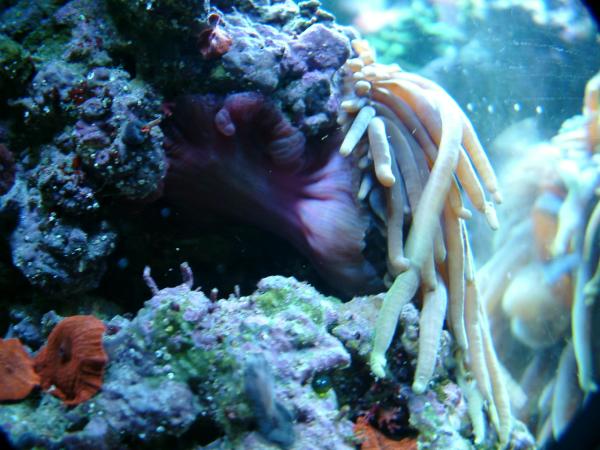
March 9, 2004 - 3:02 a.m. - To my surprise, during flashlight duty I saw the foot of the BTA wrapped around the rockwork. This is highly unusual because Bubble Tip Anemones rarely display their foot. Normally it will be deep in the rockwork in a crevice allowing the BTA to retreat deep into the rock for protection.
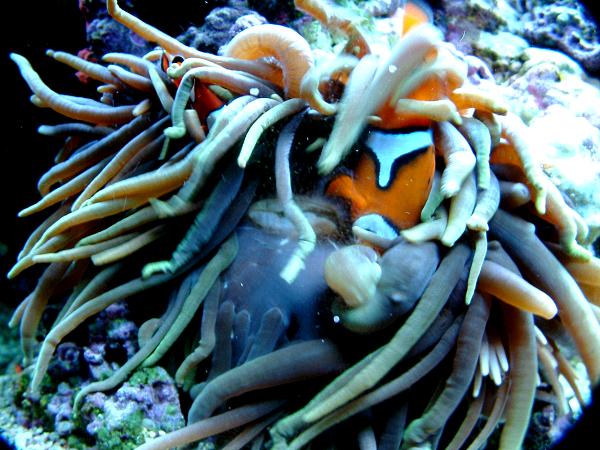
3:05 a.m. - This is the only shot I got of the mouth stretching horizontally. The clownfish were in the anemone constantly burrowing, and the tentacles tended to cover up the action making it pretty much impossible to take clear images.
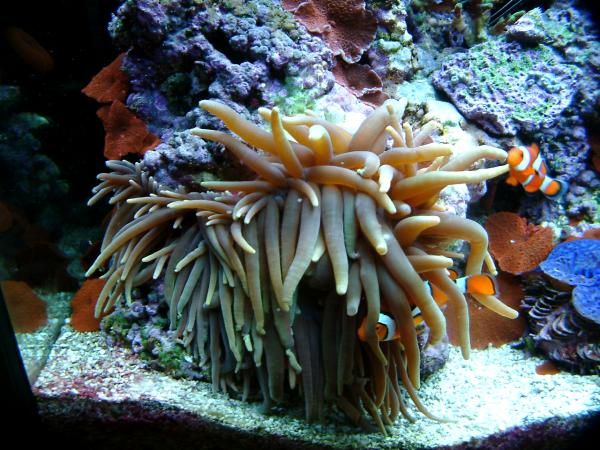
6:31 p.m. - 15 hours later, it is stretched out around the rock to the left. It should be noted that since the BTA has been in my tank, once it chose this spot it never moved for 22 months.
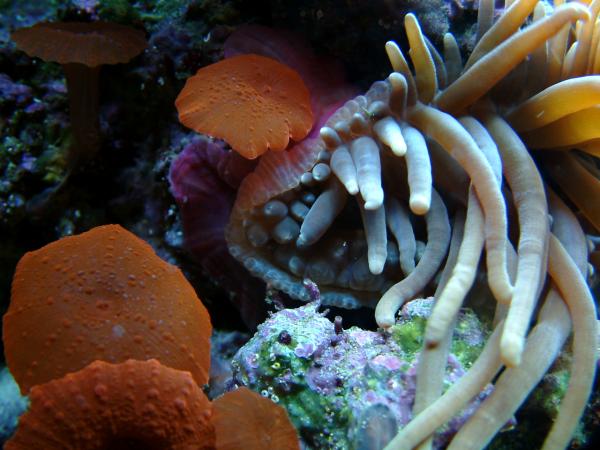
8:43 p.m. - The small anemone-to-be already takes shape.
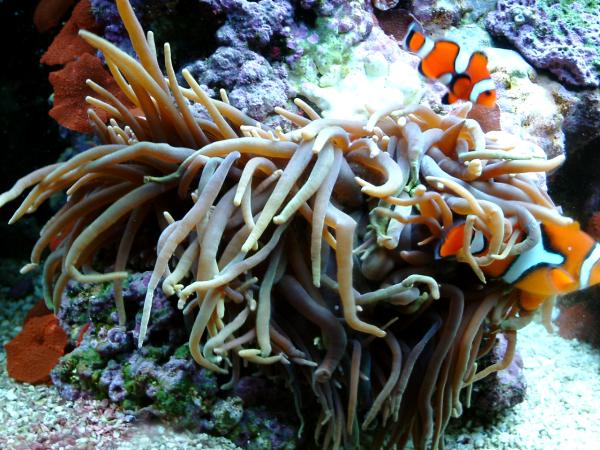
8:48 p.m. - A mass of tentacles continues to hide the action.
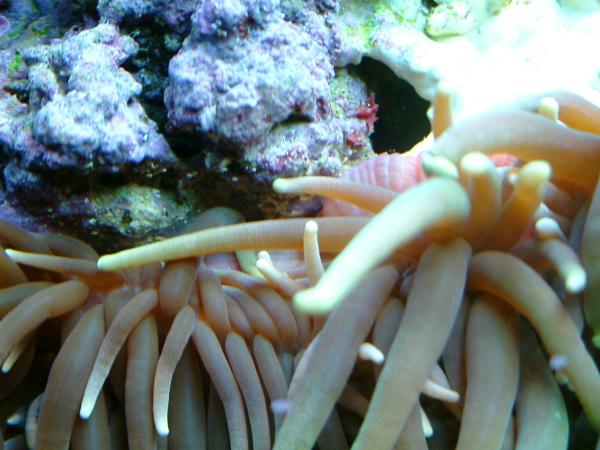
8:51 p.m. - This is a view along the top of the anemone. It was possible to see the pink base all the way across.
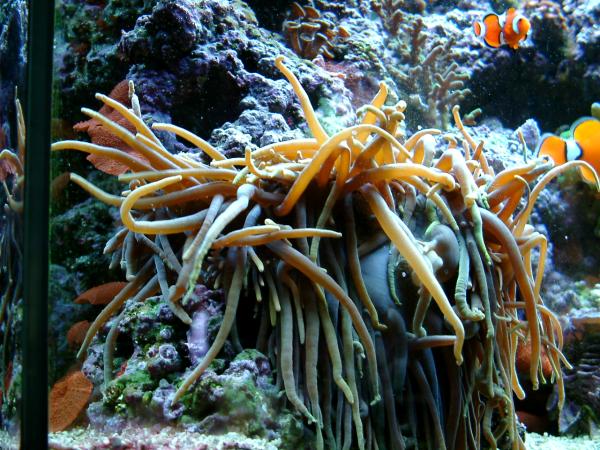
8:52 p.m.
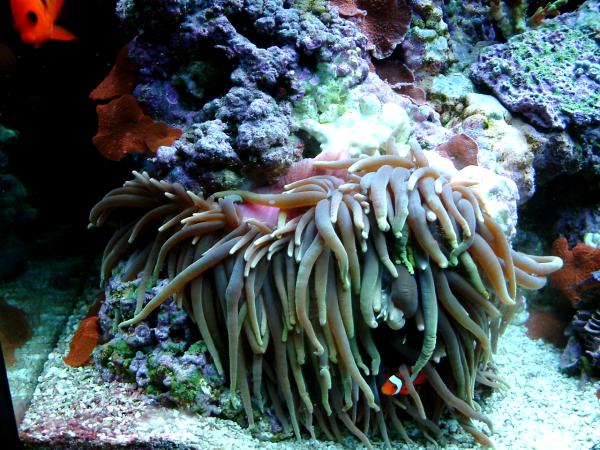
8:54 p.m.
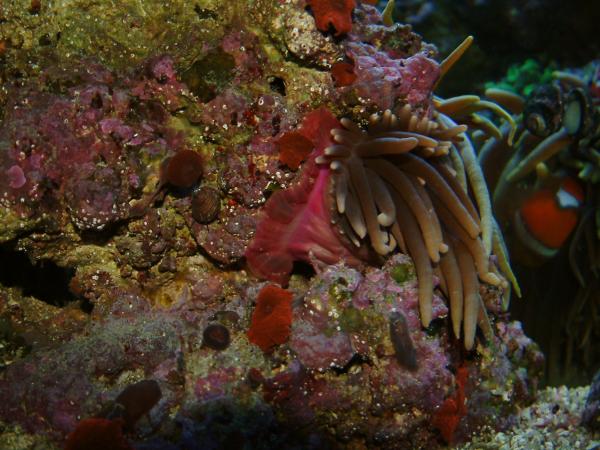
March 10, 2004 - 12:08 a.m. - The anemone gets serious now that lights are out. The split will occur over the next few hours.
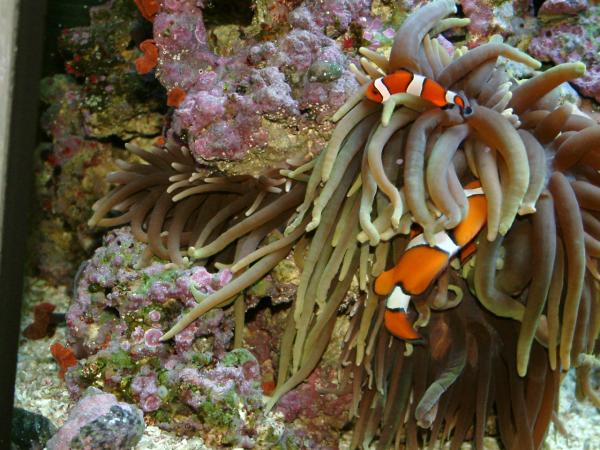
1:10 a.m.
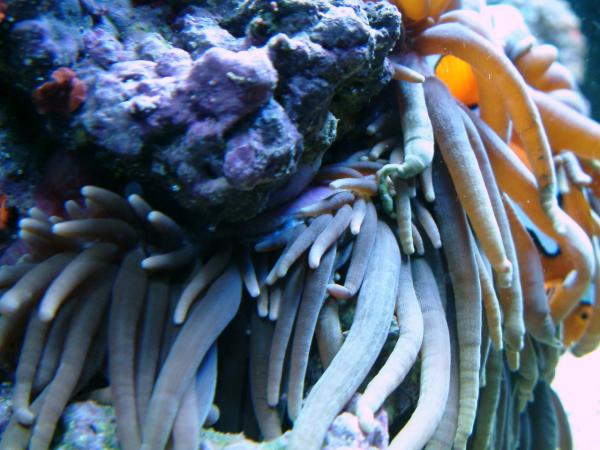
1:11 a.m.
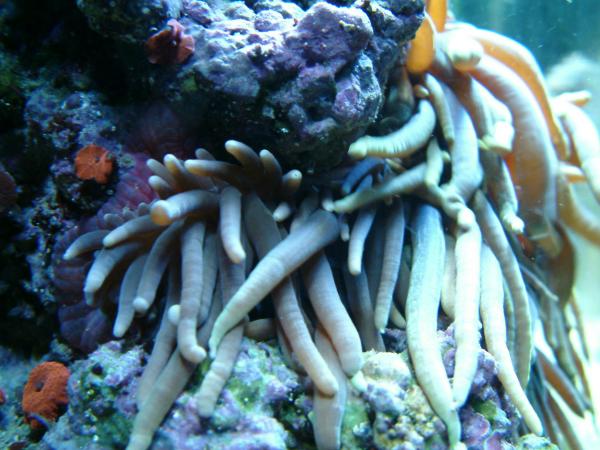
1:12 a.m.
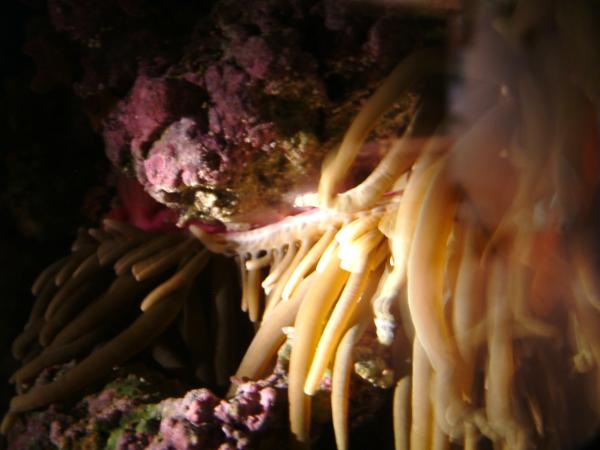
1:45 a.m. - The majority has split, and a ribbon of tentacles about 1/4" thick continues to link the two.
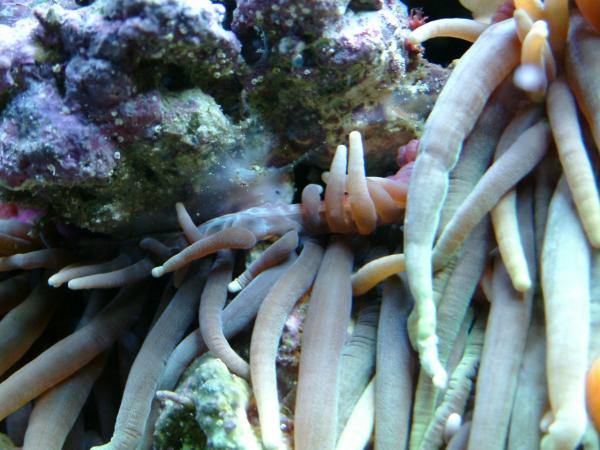
1:51 a.m. - At this point I decided to leave the lights on, because the BTA was very unlikely to abort its plans.
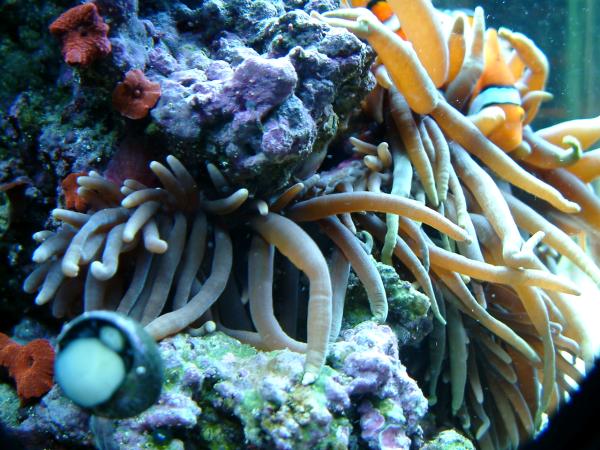
1:53 a.m.
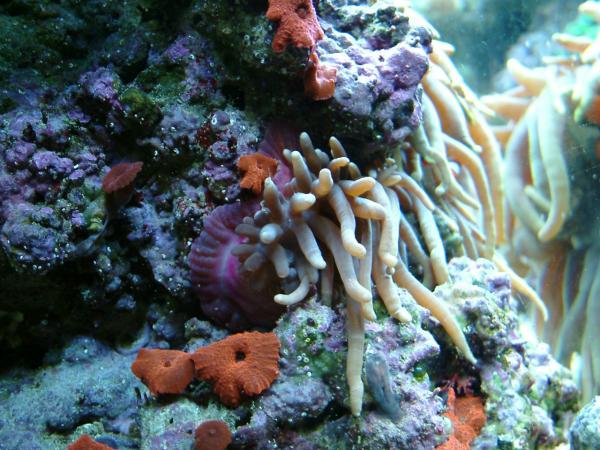
1:59 a.m.
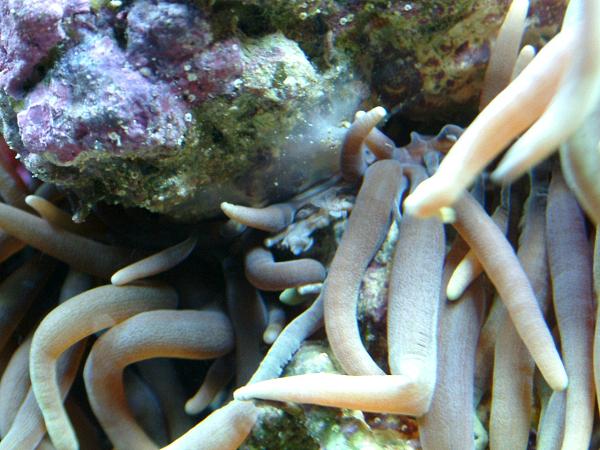
2:03 a.m. - The final piece begins to tear.
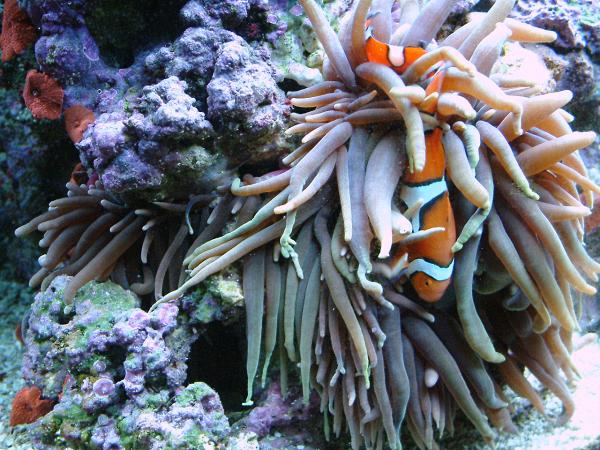
2:09 a.m.
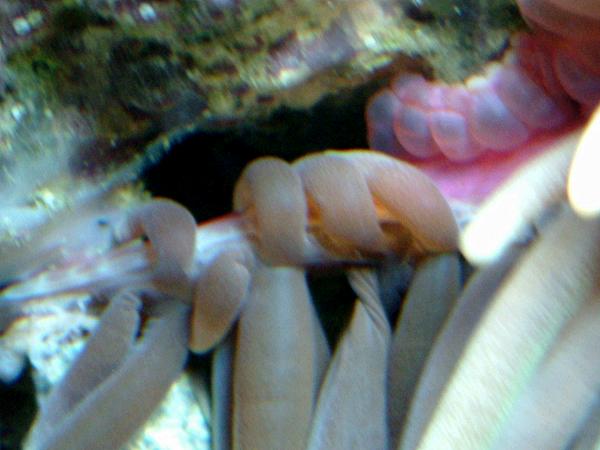
2:10 a.m.
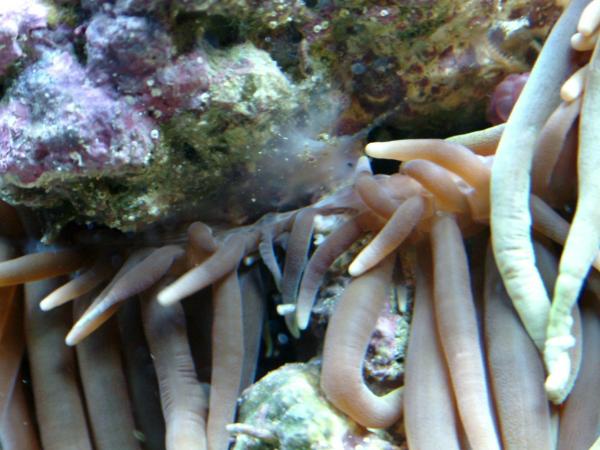
2:24 a.m.
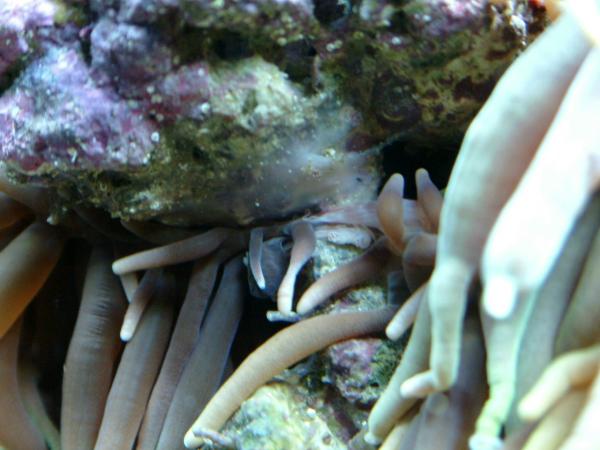
2:29 a.m. - I was able to take pictures of a few other things that usually go unseen during the latenight hours. My Blue Damsel came out as if drunk, tangling with the Coral Banded Shrimp (bad idea!), and bumped into various corals. I didn't expect it to make it through the night, but it did.
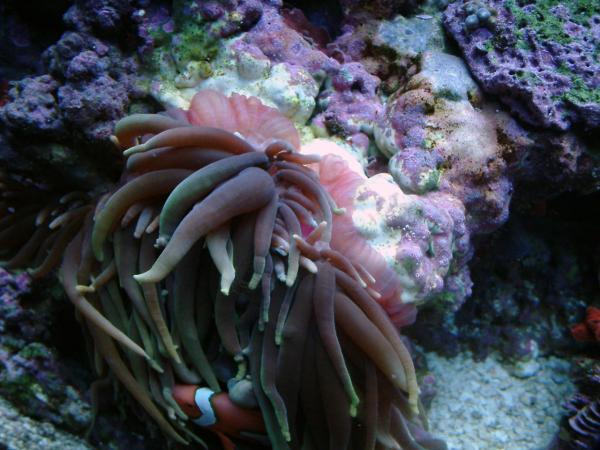
3:04 a.m. - The foot of the main portion was briefly visible. I've never seen any of this portion of the BTA in the past.
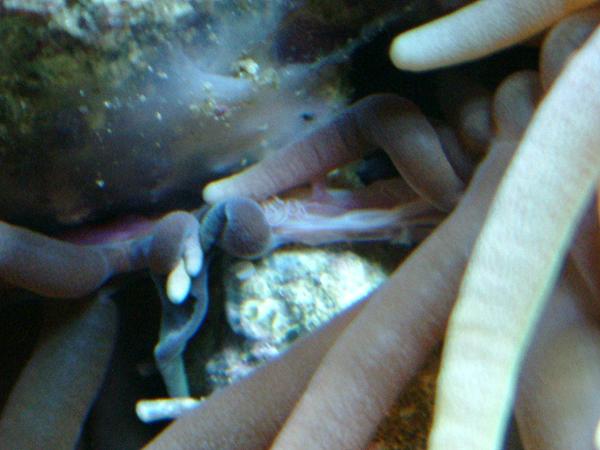
3:05 a.m.
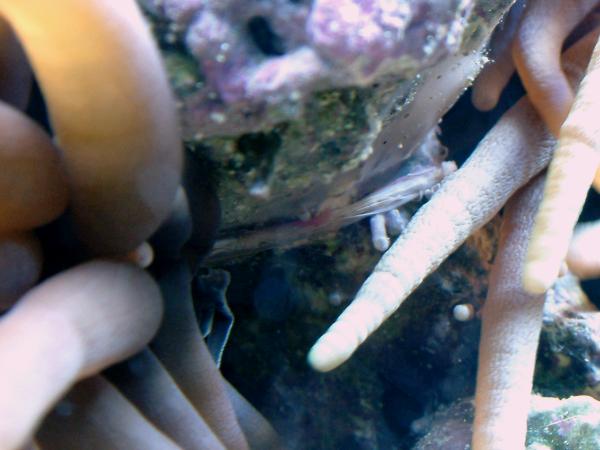
3:10 a.m. - It is down to what looks like fraying fibers. Less than 1/8" wide, it won't last much longer.
.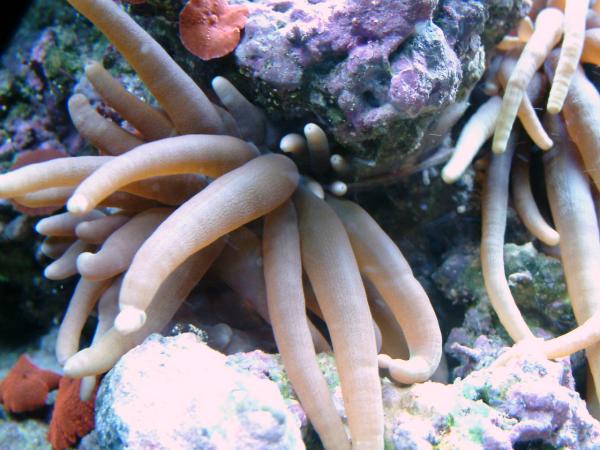
3:11 a.m. - The thread is barely visible between the two.
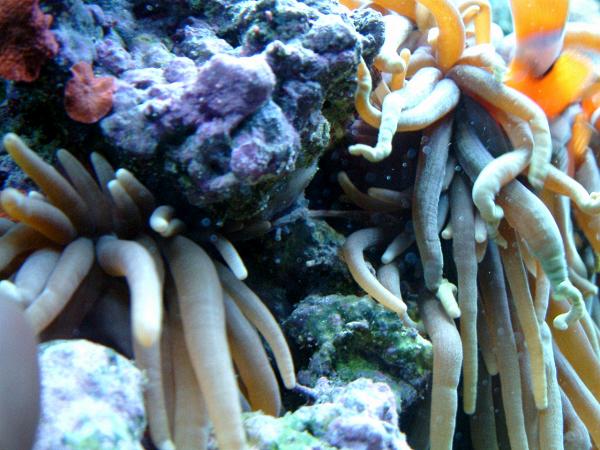
3:41 a.m. - 1/16 of an inch to go.
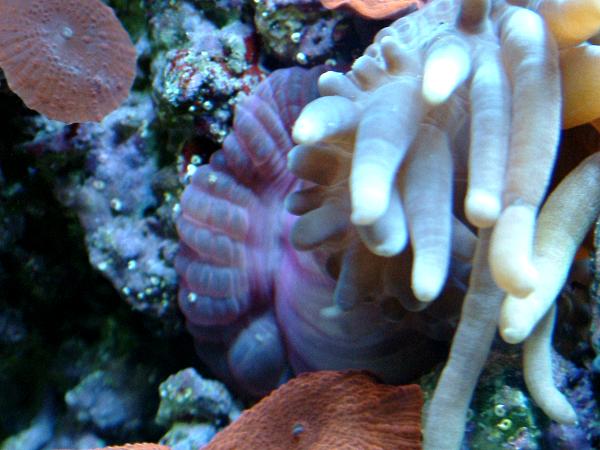
3:42 a.m. - The baby takes shape.
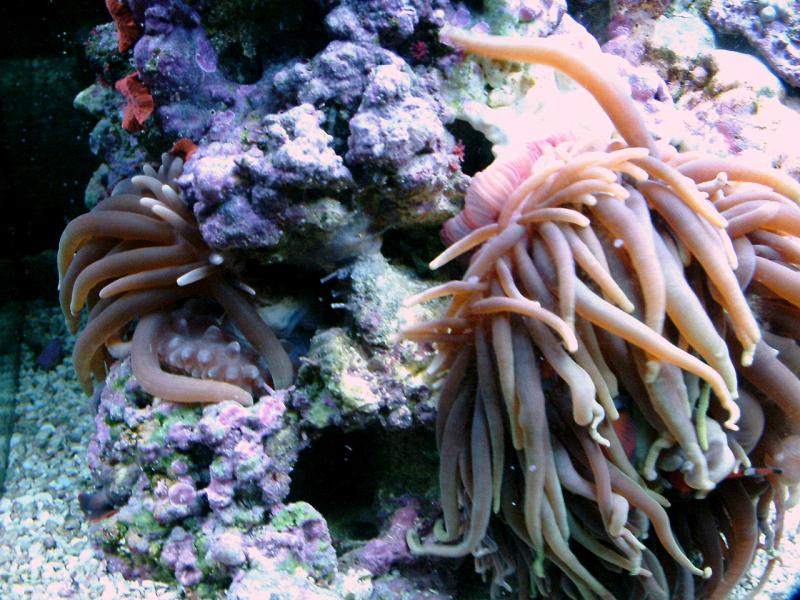
5:12 a.m. - Two separate anemones, finally. Both rest from the effort, even though the Clownfish continue to rub against their altered home.
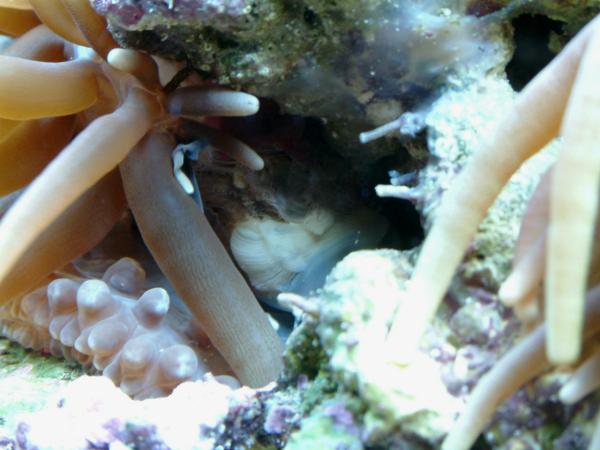
5:14 a.m. - The edge of the smaller portion shows the torn area that needs to heal.
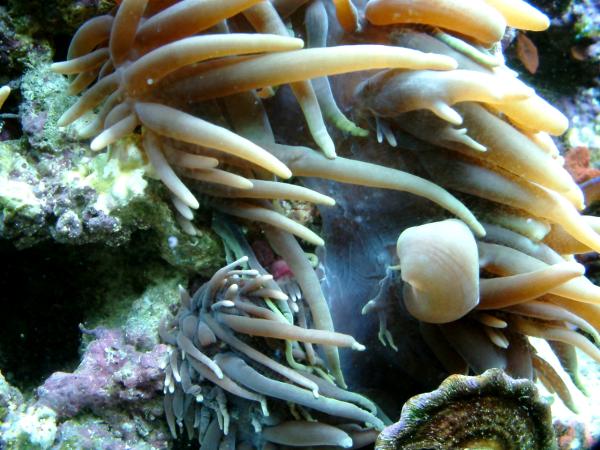
March 13, 2004 - 7:11 p.m. - The main section continues to hold the rock as before, and it resembles a backwards 'C'. I wondered if it also would split into two smaller ones, but that has not occured.
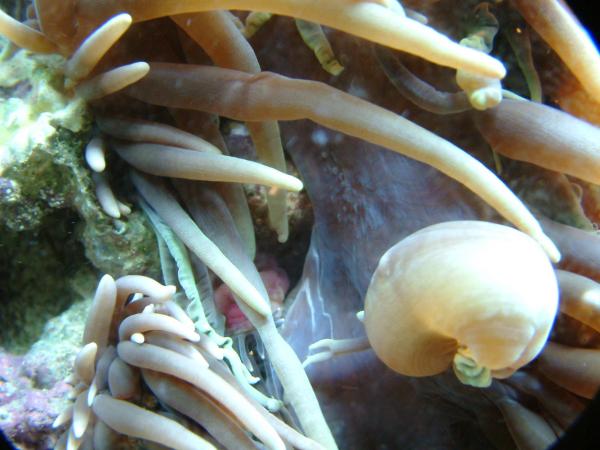
7:12 p.m. - The torn edge close-up.
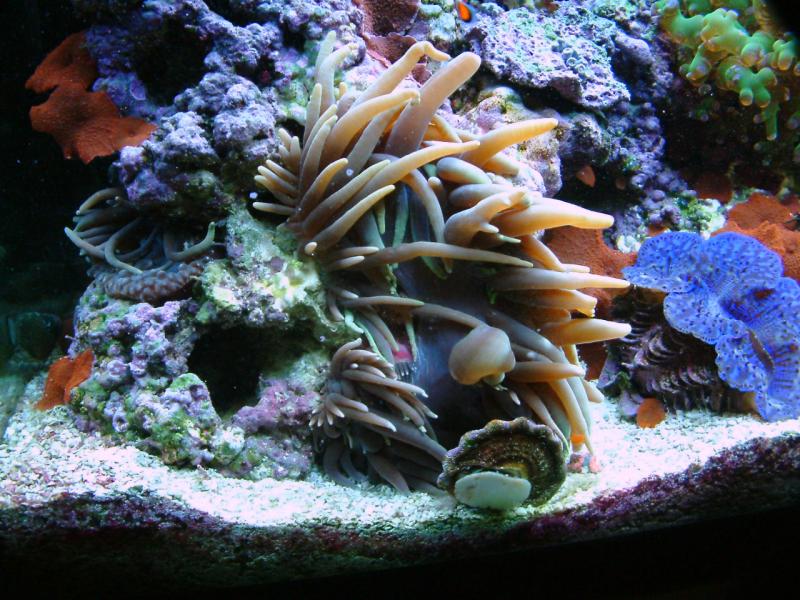
7:14 p.m. - After three days, the proud parent and its 'clone' remain near one another.
For the next two months...
The BTA, the main or larger section, stayed in that same position, and even split another piece off near the top. Unfortunately, that new clone did not survive. It was deep in a hole and I didn't try to feed it. Expecting it to come out when it was ready to eat, I waited too long and it dissolved and died. Two days later while blowing off the rock, I found the residue which I removed with a turkey baster.
After that occured, I made it a point to feed the main BTA every other day, as well as the clone. Since the larger section was still spread out, I fed it at several spots, hoping to get food to each section. The mouth seemed to exist along the entire stretched section, but bristleworms would come out and take the food away. It was very frustrating. On top of that, my two clownfish were constantly active in the anemone, inhibiting its feeding process.
I was able to catch the baby A. Ocellaris and put it in the refugium for the duration. It was impossible to catch the True Percula though. I used nets to protect the BTAs during feeding time, or any other object that would keep them unbothered for an hour. Here is one example on 4/26/04:
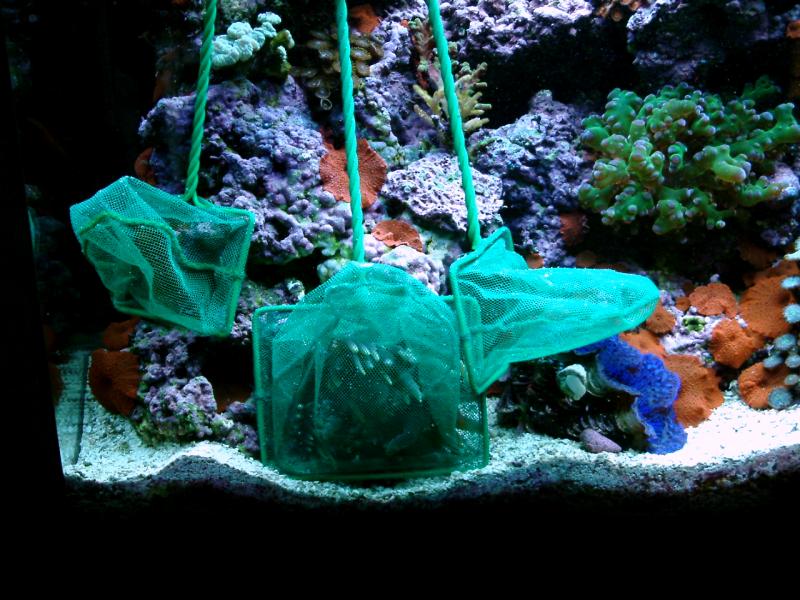
The baby clone has grown slowly, but the main one seemed to shrink more and more. About 5/15/04, I wondered if maybe the parent would die and the baby would replace it. A week later, things finally took a turn for the better.
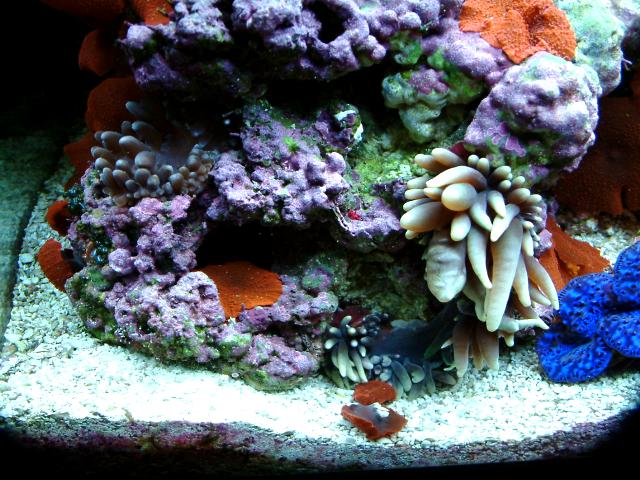
5/21/04 - The clone is visible on the left. The upper portion of the parent enlarged, and the mouth appeared to tear again.
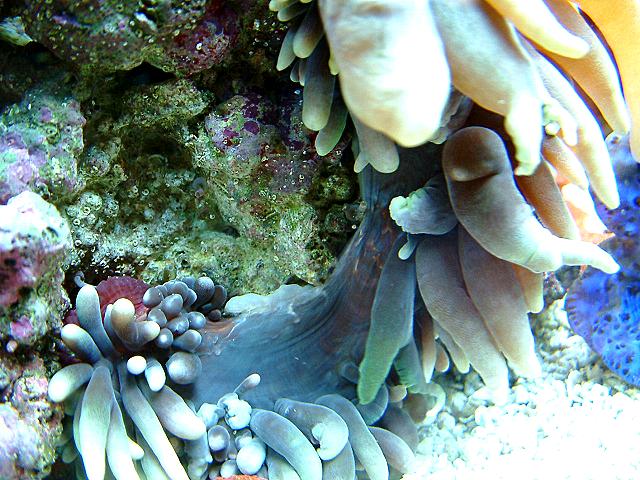
The mouth (white tissue) would extend during feedings along this smooth area.
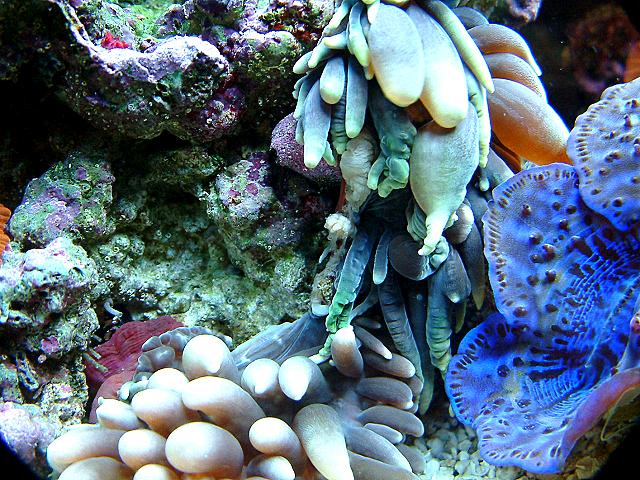
5/23/04 4:11 p.m. Only a little bit connects the two sections. It won't be long now, right?
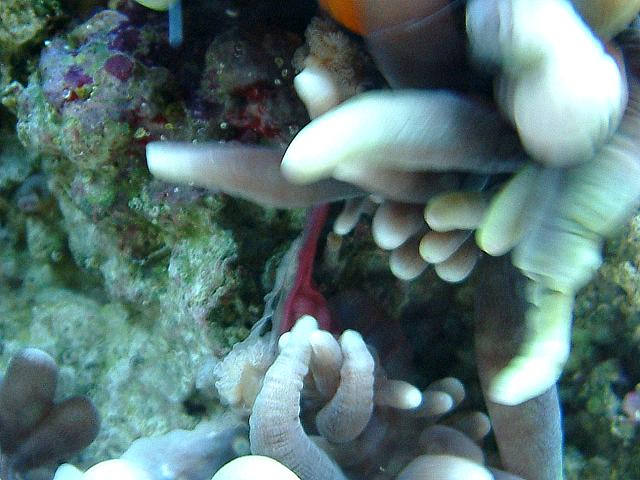
5/24/04 1:02 a.m. Still connected nine hours later, as seen in these images.
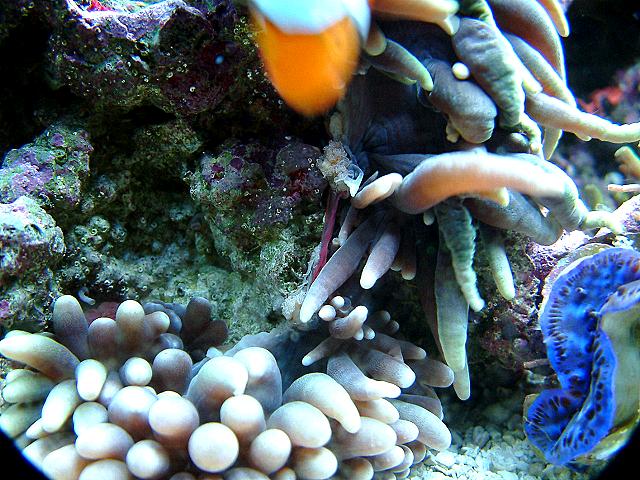
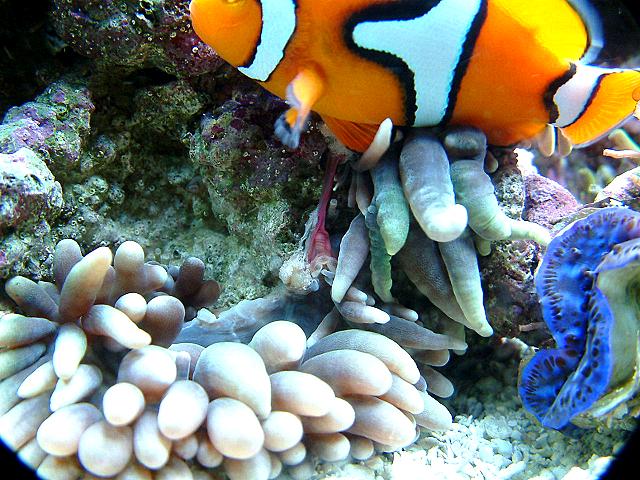
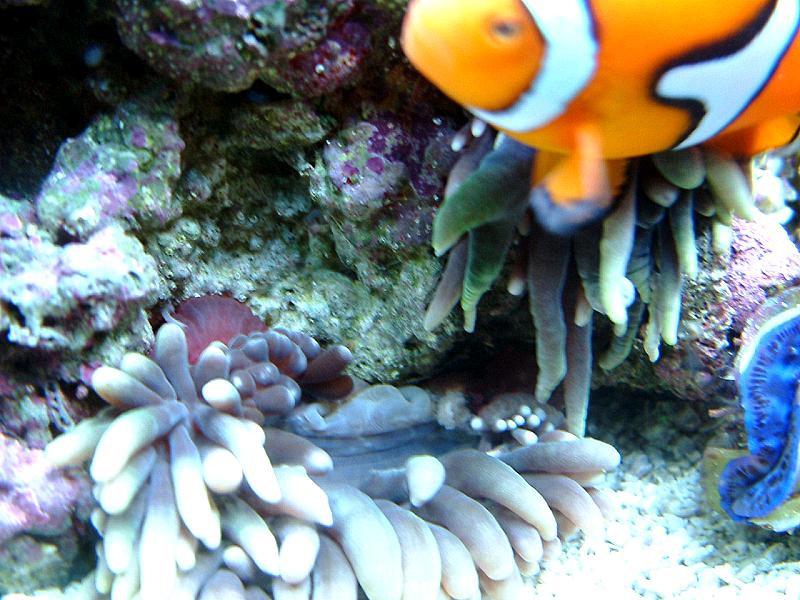
5/24/04 2:32 a.m. DONE!
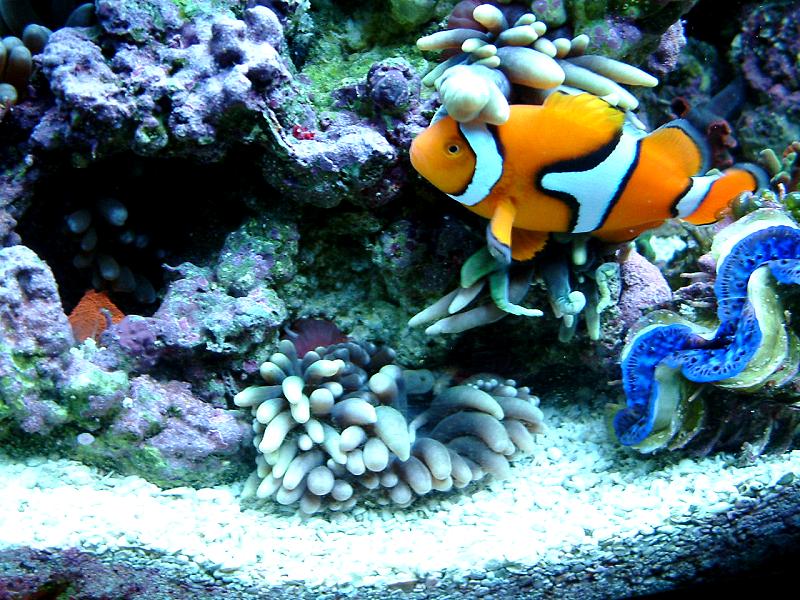
5/24/04 - Three BTAs now share this section of Live Rock. (Left, Bottom, and Right)
The end result after almost 11 weeks: Three individual Bubble Tip Anemones now co-exist in my 29g reef. My job is to feed them well so they can grow to be healthy BTAs. Interestingly, it was exactly 2 years ago this month that I bought this BTA. Now looking back, I've watched it morph not only in shape but also in color; I've watched it spawn; and finally watched it labor to split itself into four individual anemones. It truly is a fascinating creature that I have had the pleasure to experience.
